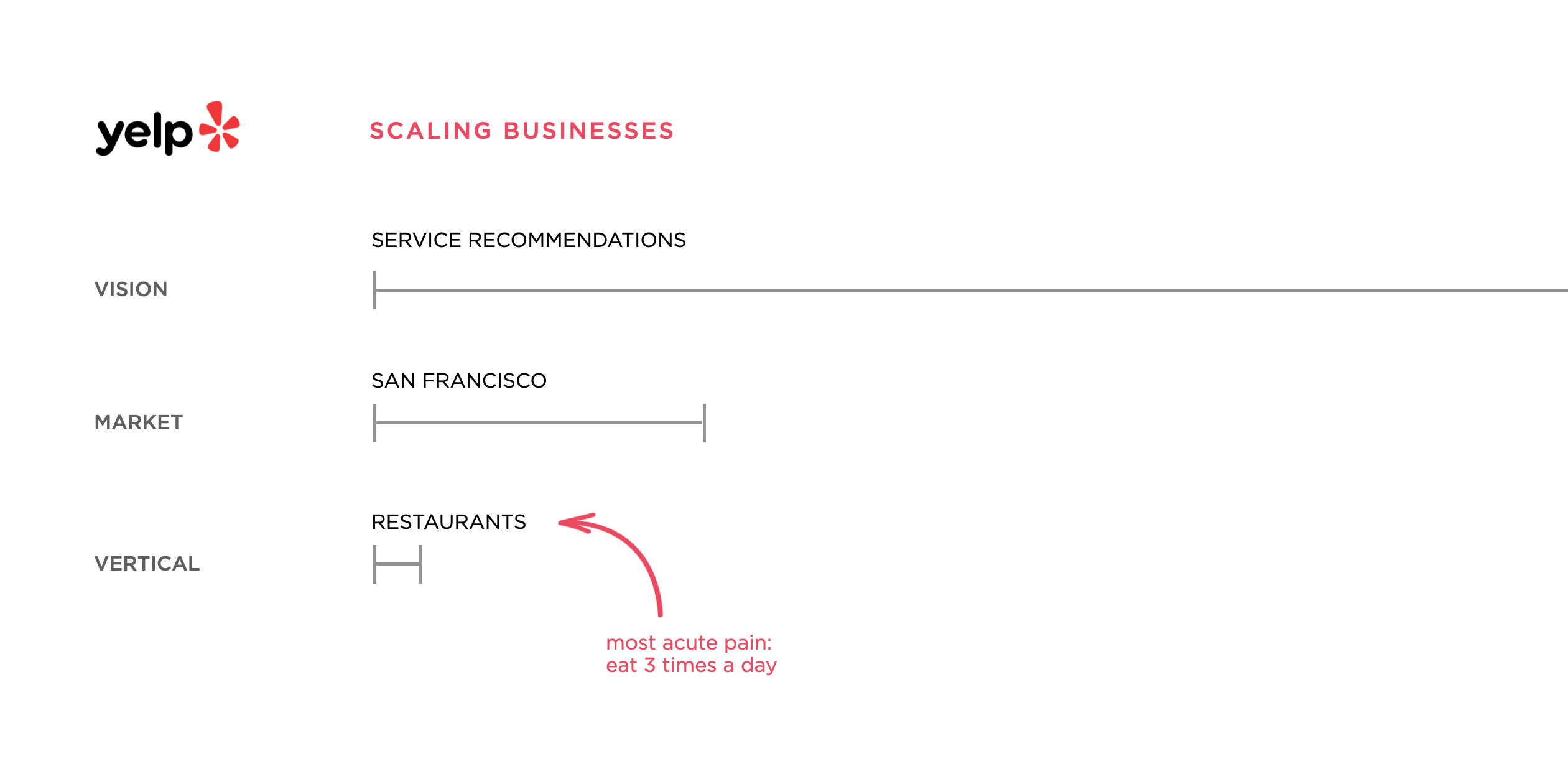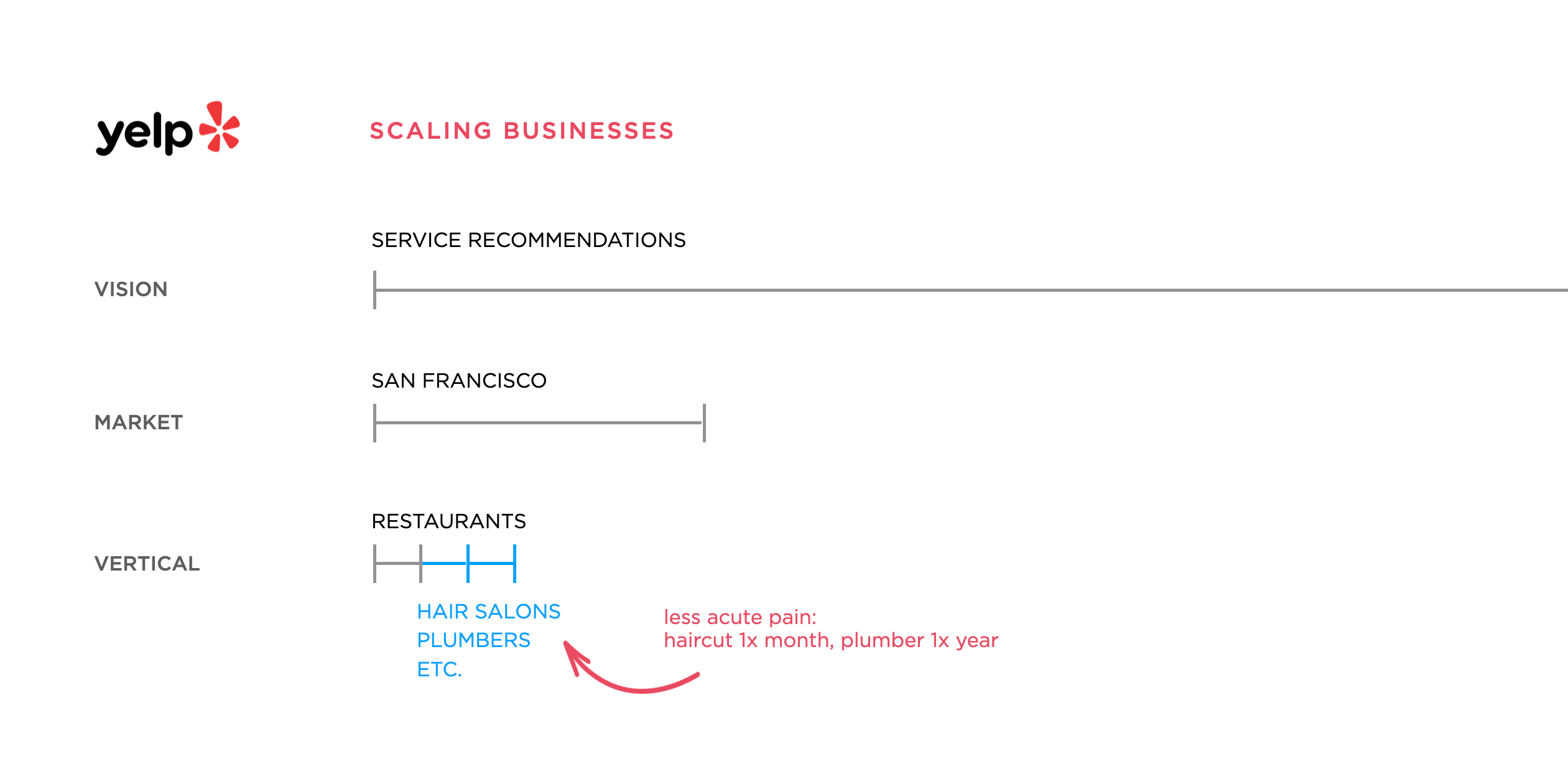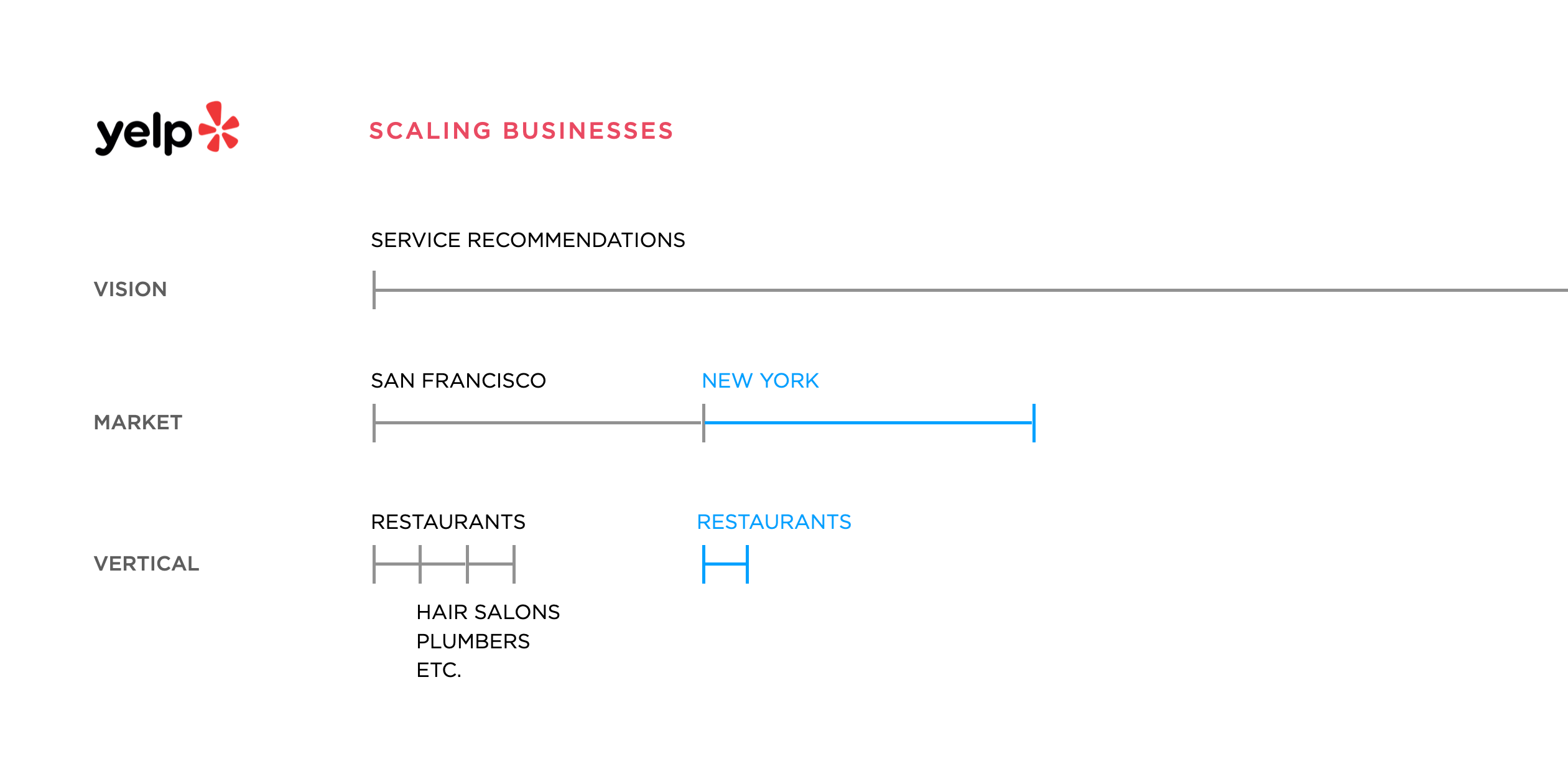New technology companies often have grand ambitions. And for good reasons - ambitious plans help recruit talent, raise capital, and set the bar high. But progress toward these high-level goals relies on identifying and excelling at much lower-level use cases.
It's very common for new technology companies to aspire being "the platform for... the Internet of things, AI analytics, mobile testing, etc." Being a platform means you capture a lot of uses cases or to put it more simply... people use your service for a lot of different things. And more use equals more value.
But vision is not the same as strategy. Vision is about the end goal. It paints a picture of the future state you're aiming for. It’s what you want to achieve. Strategy, on the other hand, is how you get there.
When you use a broad vision as a strategy, you end up having a hard time making decisions and rationalizing a never-ending set of opinions. With a strategy like “we’ll be the platform for the Internet of things”, everyone has an opinion on how things on the Internet should work -which one do we listen to?
Consider instead a specific market for the Internet of things, like home automation, and an even more specific use case for home automation like "controlling the temperature in your house". It's much easier to evaluate decisions about what a good experience for controlling the temperature in your house is than for "we’ll be the platform for the Internet of things”.
But if you focus on such a narrow use case, how will you ever build a big business? I'm not suggesting abandoning the big vision instead I'm advocating for having a strategy based on solving concrete uses cases to get there. Let's look at another example: Yelp.
Today, Yelp is used for recommendations for all kinds of services: skydiving training, auto body shops, tea parlors, and more. But it didn't start that way. Yes, Yelp likely started with the ambitious vision of being a platform for all service recommendations. But it first launched in San Francisco with restaurant reviews. A very specific market and very specific use case.
Why start with restaurants? A good starting use case is the one with the most acute pain. In the context of services, people need to eat three times a day. They get their hair cut once a month and maybe need a plumber once a year. So where should Yelp start? Probably restaurants.
When solving for a specific use case, it's important to build with the bigger vision in mind and not paint yourself into a corner of only being useful for one thing. But you definitely have to be great at solving each use case your platform supports. How else will you convince people to adopt your solution? Once you can demonstrate clear value for a specific use case, you can tackle more (likely adjacent ones).
This way of scaling ensures your solution is actually good at addressing a concrete problem people have not just an abstract vision. When you hear "What's your platform for? Well... you can use it for pretty much anything." in a sales pitch, that's a warning sign.
When you instead address specific use cases well, you learn what parts of your platform matter the most by identifying patterns and doubling down on them. It's only from solving highly specific use cases that you actually get to a platform that can be broadly used for many different things. And why Amazon started by only selling books on the Web.


